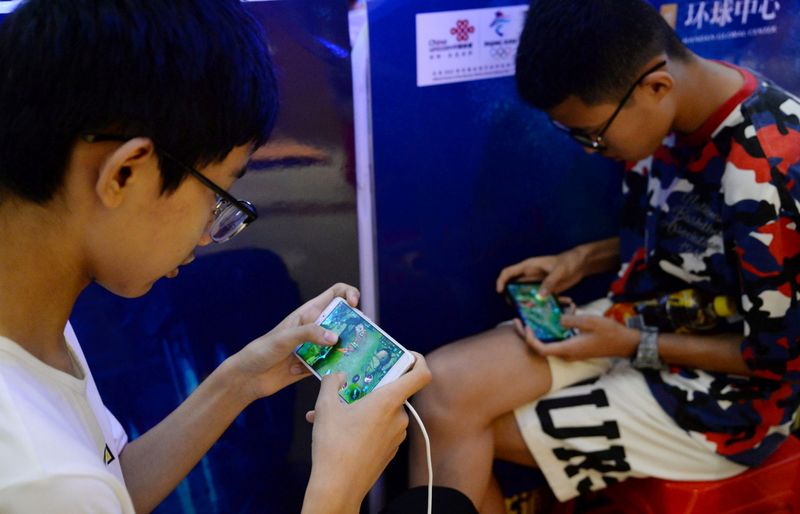This post was originally published on this site

HONG KONG (Reuters) -Tencent Holdings on Thursday vowed to keep cutting costs and work on increasing efficiencies as it reported a drop in annual revenue for the first time ever, with its founder saying the company would stay focused on its core business.
China’s economic slowdown due to the pandemic and a long-running regulatory crackdown has taken a toll on the world’s largest video game company and operator of the WeChat messaging platform.
Tencent posted revenue of 554.55 billion yuan ($81 billion) for 2022, down 1% from a year earlier. Analysts on average had expected 555.15 billion yuan, according to Refinitiv.
Profit attributable to equity holders fell 16% to 188.24 billion yuan for the year versus a consensus estimate of 114.19 billion yuan.
Tencent Chair and CEO Pony Ma told reporters on a call that the company would focus this year on getting more out of existing core businesses, rather than “trying to do everything” and compete in “red ocean markets” that already had several rivals.
“We hope that our entire business management team and technology will be more focused,” he said. “I think this is very important because we can see that focus and making breakthroughs are very key to overall development.”
The results come amid an uncertain business outlook in the world’s largest gaming market after two years of regulatory crackdown, but sector participants are cautiously optimistic about a recovery as regulators have started granting publishing licences since late last year after a months-long freeze.
Unlike in most other countries, video games need approval from regulators before release in China.
The crackdown has also changed the environment and rules that China’s tech giants operate in as regulators tighten scrutiny over monopolistic behaviour and companies’ handling of user information.
ADS ON THE UP
Tencent’s online advertising business, however, showed a surprisingly strong pickup in the fourth quarter, with revenue for the segment rising 15% that helped offset losses in domestic gaming and fintech and contributed to a 1% rise in the group’s revenue overall for the quarter ended December.
China’s city lockdowns intensified in the weeks to early December when it abruptly ended its zero-COVID policy and the shift unleashed a wave of infections, which heavily disrupted the economy and caused numerous deaths.
Charlie Chai, an analyst with 86Research, said while Tencent’s performance as a whole was “lukewarm,”, the advertising segment “shrugged off the COVID challenge and delivered industry-beating growth”.
During the media call, Tencent President Martin Lau also spoke about the company’s forays into generative artificial intelligence, which has seen a surge in global interest thanks to the popularity of Microsoft-backed startup OpenAI’s chatbot ChatGPT.
Reuters reported last month that Tencent was working on a ChatGPT-like chatbot named the “HunyuanAide” which will incorporate Tencent’s Hunyuan AI model.
Lau said the company was rapidly advancing its proprietary foundation model Hunyuan and planned to gradually roll out its own AI foundation models.
($1 = 6.8887 Chinese yuan)


